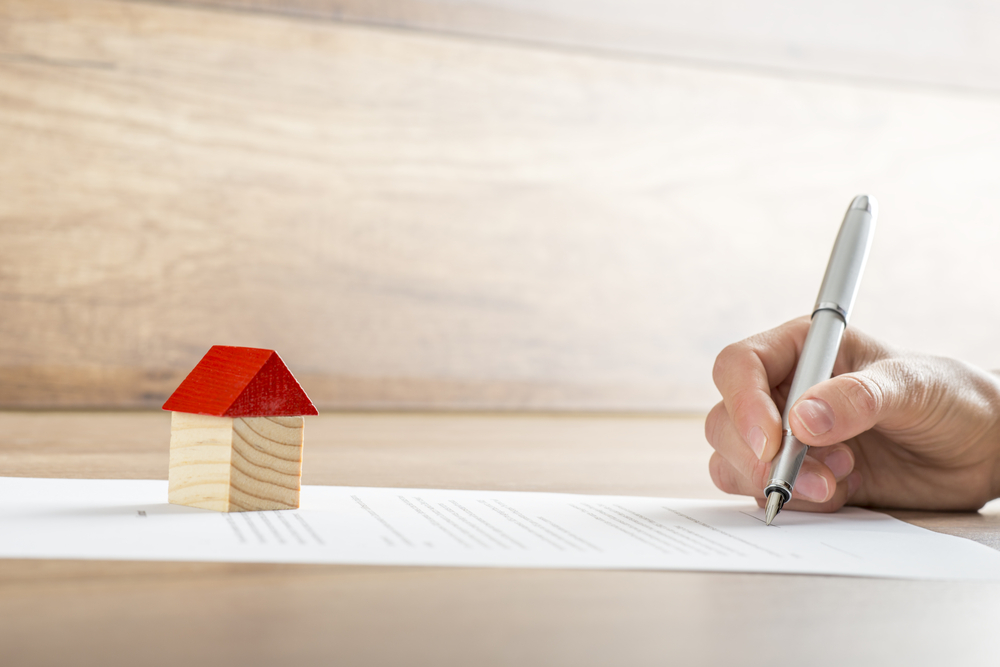
Once you’ve found a property that ticks your boxes, you’ll want to be in as soon as possible.
In an ideal world, the whole property or home buying process would be over in a day or two, but it often takes weeks, or even months, from start to finish. From tips on speeding up the moving process to organising important paperwork, this post explains how you can get organised, including some of the important steps to buying a house.
1. Speak to a New Homes Mortgage Adviser (NHMA)
If you’re proactive now, you should be able to get things moving quicker in the long run. Searching for properties in your lunch hour, commute, and any spare minute can be both fun and addictive. However, if you haven’t given getting a mortgage enough serious thought, now is the time to focus on that.
Use a mortgage calculator to find out how much you’ll be able to borrow, and how much it’s likely to cost you in monthly mortgage repayments. Have you saved enough for a deposit? Can you afford to pay a solicitor? Do you know about the various other fees and charges you’ll be expected to pay? Make sure you’re maximising your deposit saving potential by getting a Help to Buy ISA, if you’re a first-time buyer. Read our guide for more tips on saving for a deposit.

If you’re planning on using a mortgage broker or a New Homes Mortgage Adviser (NHMA) when buying a new build, make an appointment as soon as you can. You can get a mortgage in principle, also known as a decision in principle, which is a document from a mortgage provider detailing that they would lend to you based on an initial assessment of your circumstances.
They’ll look at your income, outgoings and credit history before providing this. Having a mortgage in principle will show any vendor or estate agent that you’re a serious buyer when you make an offer. It should therefore give you a stronger negotiating position.


2. Arrange your mortgage paperwork early on
When it comes to arranging a mortgage, you need various forms of ID and documentation with you to your mortgage interview. You’re required to prove what your income is and outgoings are. Prepare in advance by getting your paperwork organised in a folder, so that there are no hold ups. If you’re going to be buying the property with someone else, they should prepare their paperwork too.
You’ll need:
- Valid photo ID (passport or photocard driving licence, although many brokers and lenders will validate your ID electronically these days)
- Proof of current address (a council tax bill, bank statement, credit card bill, utility bill, dated within the last three months - you may also need proof of your address for previous residences if you’ve moved within the last 3 years)
To learn more about what documents are needed for purchasing a house, read our essential house purchase documents guide.

- Your last three monthly bank statements
- Your last three to six monthly payslips
- Proof of any commission or bonuses
- Your P60
- If you’re self-employed, you’ll usually need to provide three years’ worth of business accounts or your SA302 self-assessment tax returns, although some lenders will accept just one years’ accounts
- Proof of your deposit

3. Speak to your solicitor about paperwork they’ll require
Once you’ve made an offer on a property, had it accepted and instructed a solicitor to begin the conveyancing process you’ll start receiving correspondence and paperwork from your solicitor.
When they do send you anything they’ll always explain what they want you to do with it. For instance, when they send you a draft of the contract, they’ll ask you to read through it and let them know if you have any issues or queries. You should always try to do this promptly, so it doesn’t cause any delays.
After completion, you should keep the following in a safe place:
- Title deeds confirmation
- Copy of the lease, if your property is leasehold

- Copies of the searches the solicitor undertook
- 10-year Buildmark warranty document, if your property is a new build
- Stamp duty confirmation
- House purchase documents
- Electrical certificates
- Building control certificates, if the property has been extended/converted
- Guarantees for appliances, double glazing, boiler etc. if applicable
- Building insurance documents

This guide to saving for a mortgage was produced in collaboration with L&C, the UK’s leading fee-free mortgage experts.



